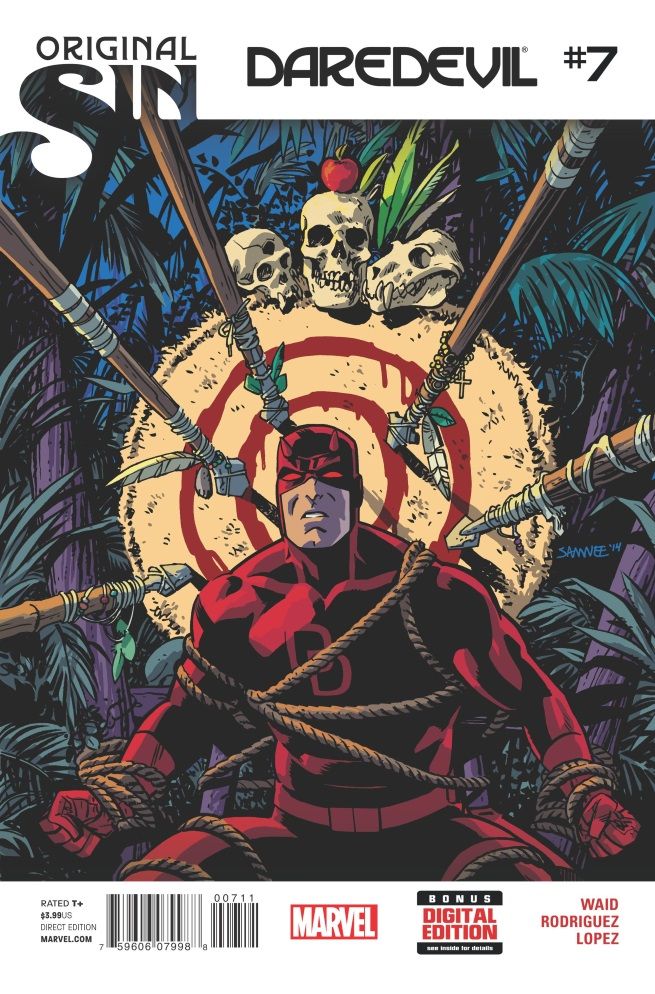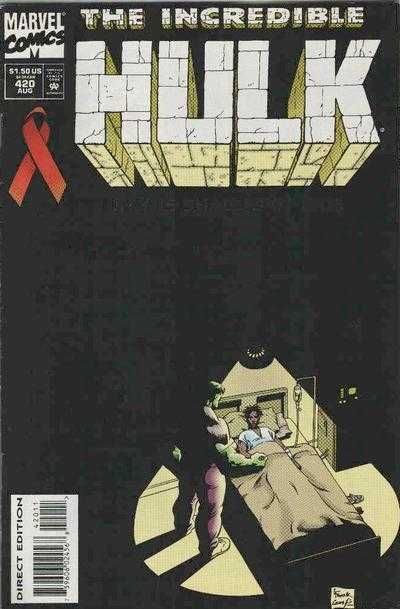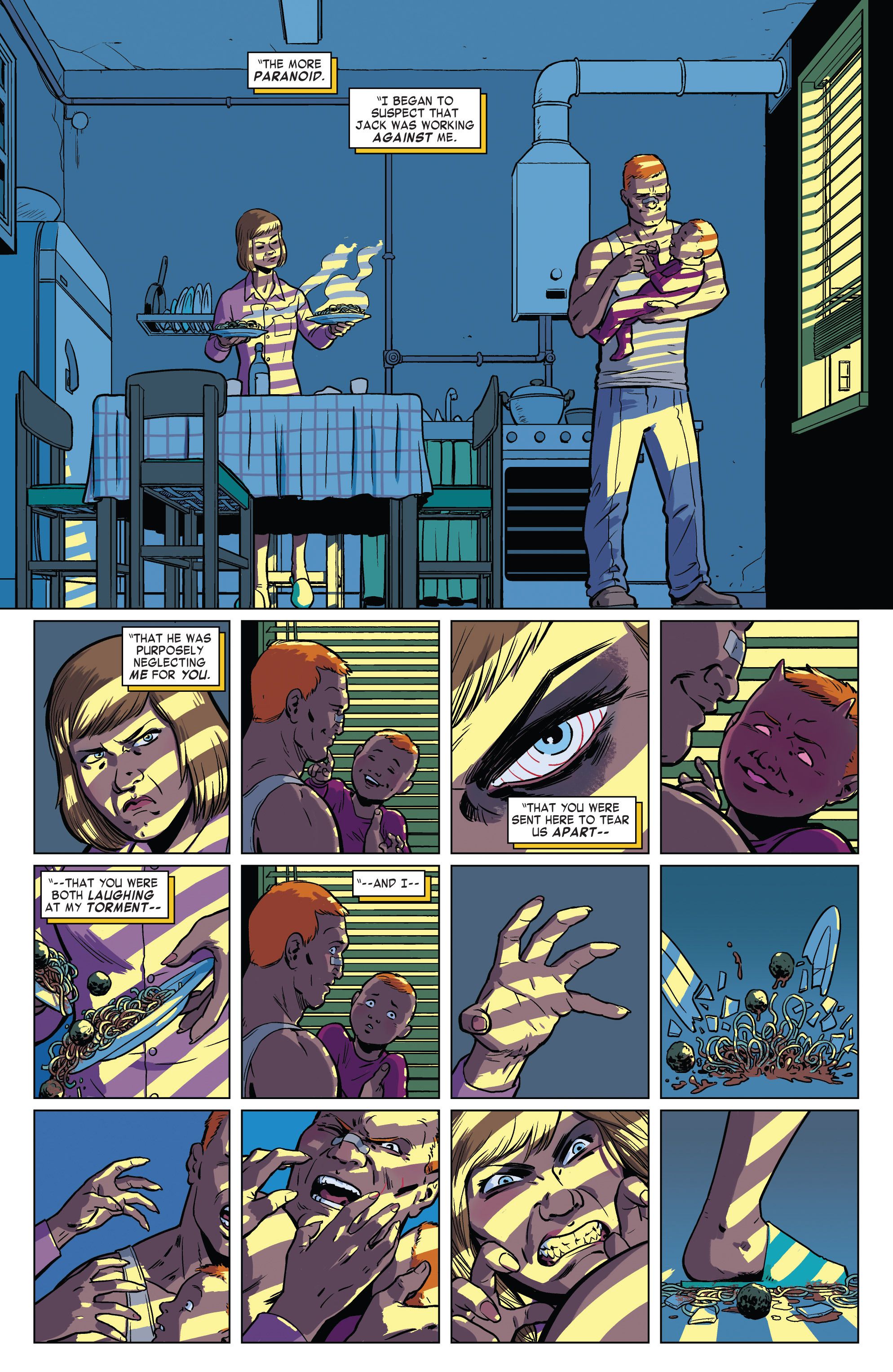As a child of the '80s, I'm well aware of the PSA comic. There was a lot of media at the time intended to teach kids about the dangers of everything from drugs to molestation to crossing the street. It was difficult to avoid that "very special episode" of your favorite television series, or that equally special Spider-Man comic in which the wall-crawler confronts drug abuse in Canada.
They were often heavy handed, with strong narration reminding you to tell an adult, or scary scenes depicting the the horrible death of a minor or previously unknown character. Pop culture tried to use its powers for good, and often these PSAs were skipped over, at best, or mocked tremendously in our older years.
But then there are those times when a comic can actually teach you something, or provide a little solace in its handling of a tough issue. I've talked here about the X-Men comic I received in a burn ward to help kids cope with the trauma, and there's also a line of called Medikidz to explain other medical issues like cancer, Crohn's disease and multiple sclerosis. These are pretty weighty topics, but a comic can make the information easier to digest. For the "PSA" comic, it seems like the more specific the information given is, the better the story comes out, and the more helpful it can be to a younger reader.
Does the same hold true for older readers? Recently, Daredevil #7, by Mark Waid and Javier Rodriguez, dealt with a mature topic that wouldn't really fly with a younger audience. Did it hit its marks, or was this just another "very special episode" with Matt Murdock? Read on and find out.
WARNING: Spoilers for Daredevil #7, so please do yourself a favor and grab a copy and read along!
In Marvel's "Original Sin" storyline, heroes have been given glimpses of truths or secrets from their pasts that impact their personal lives. Matt Murdock was shown a shocking vision of his mother recoiling in terror from his father; Murdock, thinking the worst, goes to talk to his mother (now a nun, for maximum Catholic imagery) and an adventure ensues. We'll skip the part about extradition to Wakanda for radical nun terrorism for now (it's more mild than it seems) to get to the twist in our hero's vision: that his mother wasn't recoiling from his father, as he'd assumed, but rather from herself and her own baby. After giving birth to Matt, his mother Maggie fell into what's now known as a Perinatal Mood and Anxiety Disorder, and began to lose herself to depression, guilt and rage. In a moment of that rage, she lashed out to attack baby Matt, and the scene we witnessed in flashback was Jack Murdock protecting his son from a mother who could no longer cope. She left her family and found solace in the Church, dedicating her life to helping others.
This is a surprising topic for a comic book: You don't see a lot of women's issues highlighted in storylines, let alone one that doesn't depict the woman in question being abused or otherwise victimized. There remains a social stigma surrounding postpartum depression and other mood disorders, and depicting one so honestly is no easy feat. It's very specific, which would make the casual reader think it's a little too out there for general discussion ... until you see the statistics at the end of the comic, stating that 1 in 7 mothers and 1 in 10 fathers have depression or anxiety during pregnancy or postpartum. Respectful to the topic and very informative, Daredevil #7 presents this issue with dignity. And that's just not from my comics-reading opinion, but from professionals and survivors as well (it's pretty cool to see comics spoken of on Psychology Today).
It reminds me aof Incredible Hulk #420, from 1995, a "very special episode" that addressed AIDS within the context of the Hulk's adventures. Mind you, this was still the '90s, and the plot was a bit heavy with PSA tropes (the big "scare tactic" came while Betty counseled a young man diagnosed as HIV-positive who later kills himself while on the phone with her), but the letters page was devoted to personal accounts from members of the Marvel Bullpen, who related their experiences with HIV and AIDS. It was exceptional for its time because AIDS wasn't a "kids" topic (we'd rate that book T+ today), and the creators and editors were brave enough to talk about the issue openly within the context of the story and personal accounts.
There was still a great deal of prejudice at the time toward those infected with HIV, and to lose the Hulk's former sidekick Jim Wilson (who was revealed revealed as HIV-positive in 1991) made an impact. For a moment, the story was moved from a "very special episode" to something comic readers could talk about and learn from.
Daredevil #7 took our assumptions -- most readers probably thought the vision Daredevil saw was of his father abusing his mother -- and used those emotions for a different end. Instead of Jack Murdock, abusive husband, we saw a loving father and troubled husband as his reassurances to his wife couldn't break through her depression. The sympathy already garnered for Maggie remained as she struggled through her terrifying postpartum depression; Rodriguez's art for the flashbacks is incredible, with tight, suffocating panels and a realistic edge that makes the terror we feel for Maggie hit home that much harder.
PSA comics typically aren't great. They usually step back from the regular storylines and talk to readers as if the creators know what's best for them. They can come across as cheesy or embarrassing, or worse, lose their message entirely by being heavy-handed with their moral. In that way, Daredevil #7 wasn't a PSA or "very special issue," as the issue flowed naturally through the narrative and added a little more to Matt Murdock's troubled history. It filled in some gaps, gave us a logical resolution and a little information about a topic not often talked about. In a world of metaphor and science fiction, Waid and Rodriguez bring a respectful and powerful dose of reality.




